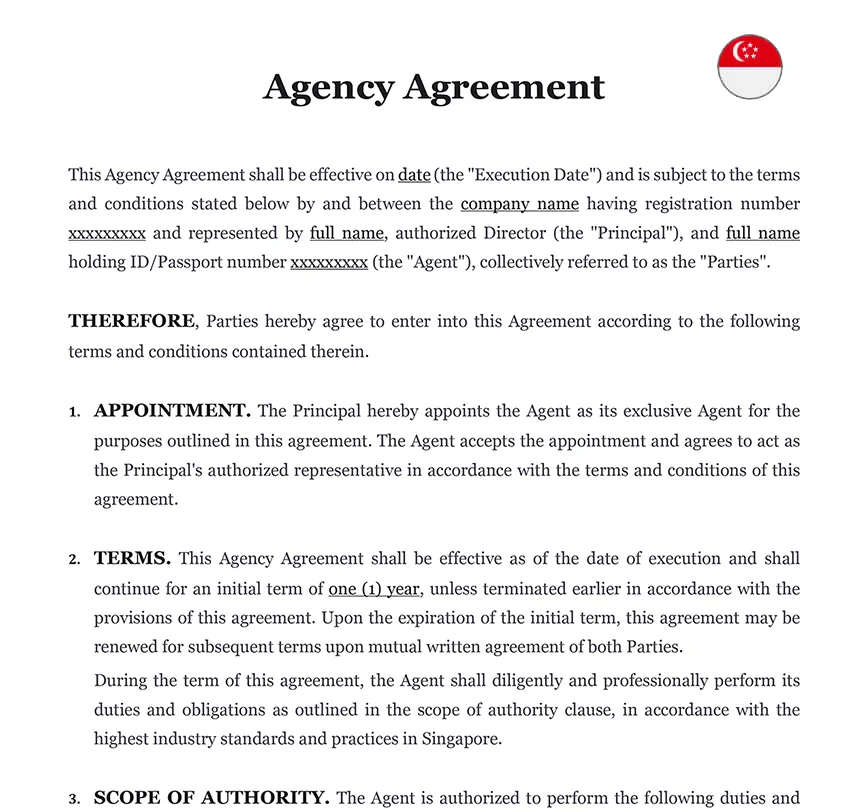Ready to use legal template
Drafted by experienced lawyers
Compliant with Singapore law
Ready to use legal template
Drafted by lawyers
Compliant with Singapore law
Home › Business contract › Agency Agreement
Learn more about Agency Agreement in Singapore
Looking for an Agency Agreement template in Singapore? Look no further! Themis Partner offers an easy-to-edit legal template, meticulously drafted by experienced lawyers in full compliance with Singaporean law. Whether you run a marketing, IT, Human Resource, Event, Accounting, Public Relations or any other type of agency, our comprehensive agreement covers all essential aspects, protecting the rights and responsibilities of both parties involved. With our user-friendly Agency Agreement, you can secure your agency relationships with confidence and ease. Don’t miss this opportunity – get started today!
Table of contents
How does an Agency Agreement function in Singapore?
What are the differences with a Distribution Agreement?
What are the benefits?
How does it address issues of compensation and remuneration?
What are the termination provisions included in it?
How does it protect intellectual property rights?
How does it differ from a service agreement?
How does an Agency Agreement function in Singapore?
An Agency Agreement functions in Singapore as a legal contract between a principal and an agent, establishing a working relationship in which the agent acts on behalf of the principal in various business activities. The agreement outlines the rights and responsibilities of both parties and serves as a framework for their collaboration. The agent, as the representative of the principal, undertakes tasks such as marketing, sales, and promotion of the principal’s products or services within the agreed scope. The agreement defines the scope of the agent’s authority, the territory or market covered, and any exclusivity or non-compete provisions. It also addresses issues of compensation, remuneration, and termination. By entering into an Agreement, both the principal and the agent can benefit from leveraging each other’s expertise and resources, expanding their reach in the Singaporean market, and establishing a mutually beneficial working relationship.
ℹ️ It provides clarity, establishes expectations, and helps mitigate potential disputes, contributing to the effective functioning of business operations in Singapore.
What are the differences with a Distribution Agreement?
A Distribution Agreement differs from an Agency Agreement in several ways. While both agreements involve the sale and distribution of products, they establish different types of relationships and obligations.
| ➤ In a Distribution Agreement, the distributor acts as an independent entity and assumes more control over the marketing, sales, and distribution of the supplier's products. The distributor purchases the products from the supplier and then resells them to customers, often operating with more autonomy and assuming more risk. The distributor may have more flexibility in setting pricing, marketing strategies, and expanding the customer base, while an agent focuses on promoting the principal's products within the agreed scope. |
| ➤ An Agency Agreement establishes a principal-agent relationship, where the agent acts on behalf of the principal and does not take ownership of the products. The agent typically earns a commission or fee for facilitating sales and may have less control over pricing and distribution decisions. |




